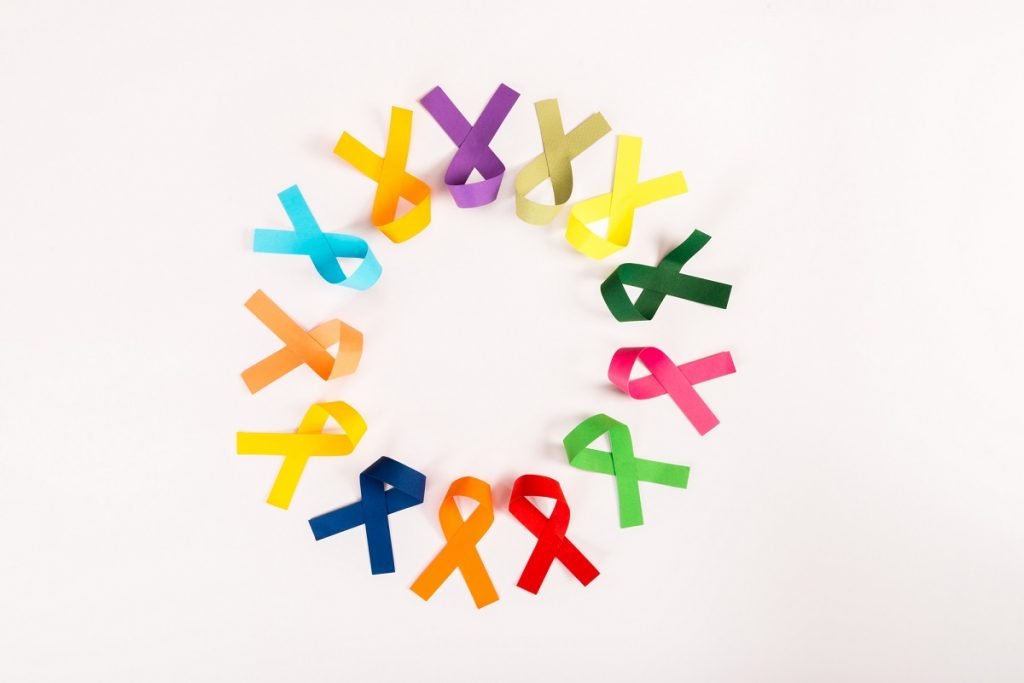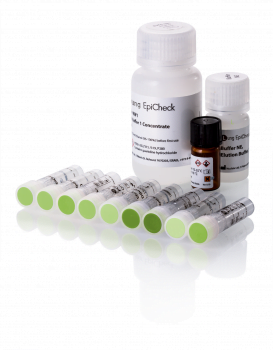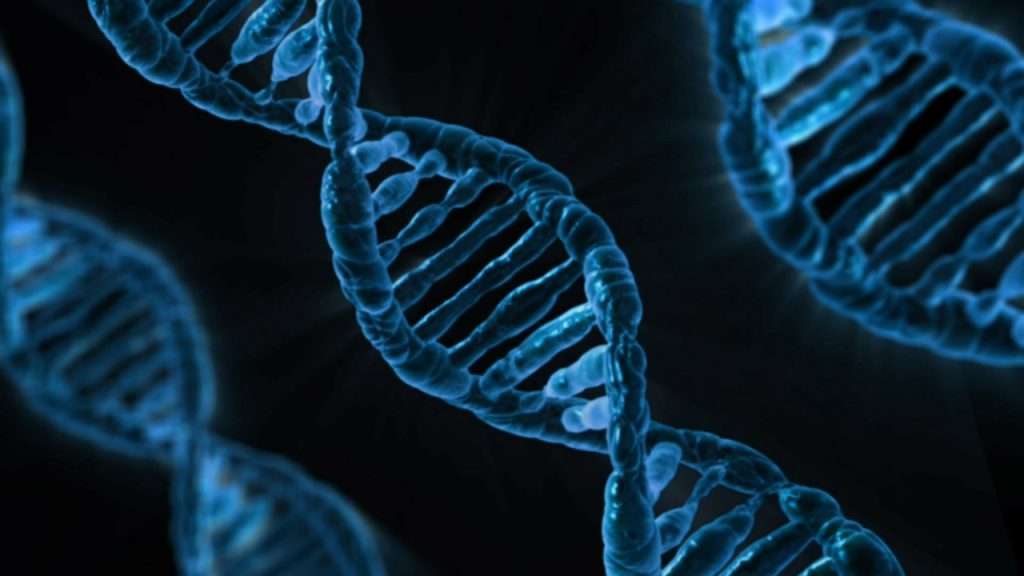Cancer is the second leading cause of death worldwide, according to the World Health Organization, and was responsible for nearly 10 million fatalities in 2018 alone. And although there have been dramatic advancements in detecting and treating the disease, of which there are over 200, there is no known cure for cancer.
To mark World Cancer Day, an international day to raise awareness of the disease, NoCamels is highlighting some recent developments in cancer research, clinical trials, detection methods, and new therapies – all from so far this year.
1. Cryoablation therapy for bladder cancer
Israeli medical startup Vessi recently reported positive results from a preclinical trial on pigs demonstrating a new approach in the treatment of superficial bladder cancer using cryoablation, a treatment that utilizes extreme cold to freeze and destroy abnormal tissue.
SEE ALSO: Breakthrough Cancer Therapy Developed By Israeli MedTech Startup Heads For Clinical Trials
Vessi, founded in 2015 as part of the Trendlines incubator, says its minimally invasive solution could become an alternative in the treatment of non-muscle invasive bladder cancer (NMIBC) for which Transurethral Resection of Bladder Tumor (TURBT) is the first line of treatment.
The company says its bladder-specific cryoablation technology seeks to eliminate problems often reported with TURBT, a costly, highly invasive surgical procedure.
https://youtu.be/SmD3RVhsLA0
The patent-pending Vessi Medical system consists of a standalone console with a “cryo-spray, and a disposable catheter that is inserted into the bladder similar to existing intravesical (inside the bladder) techniques.
“Surface cryotherapy is a potential paradigm shift in the treatment of superficial bladder cancer,” said Prof. Gilad E. Amiel, Department of Urology Chair at the Rambam Health Care Campus, who performed the procedures. “Tissue response to the cryo-spray can be seen in real time, allowing physicians to assess destruction of the tissue. Visualization was excellent at all procedure stages and was not affected by the cryo-spray.
“The trial results provide Vessi with the necessary data and confidence to proceed to first-in-human trials,” he added.
Vessi CEO Eyal Kochavi said the animal study was “an important step toward making cryo-spray ablation a significant tool for the treatment of superficial bladder cancer.”
“Our next step is demonstrating the technology in humans prior to regulatory submission. Vessi’s technology focuses first on bladder cancer, but can hopefully address other bladder illnesses such as overactive bladder, providing a win-win solution for patients, physicians, and the healthcare system,” he said.
2. New study: Allergy-causing white blood cells can destroy colon cancer cells
According to the initial findings of a new study at Tel Aviv University, white blood cells responsible for causing modern allergies and which are believed to have played an evolutionary role in combatting parasites, called eosinophils, may be used to eliminate malignant colon cancer cells.
The research was published in the medical journal “Cancer Immunology Research” last month. It showed that eosinophils displayed potent anti-tumor activities and could directly kill tumor cells in mouse models of colorectal cancer.

Ribbons for cancer awareness. Deposit Photos
“Eosinophils are white blood cells that secrete powerfully destructive proteins,” said Professor Ariel Munitz of the Department of Microbiology and Clinical Immunology at TAU’s Sackler School of Medicine who led the study. “They may have played an evolutionary role in combatting parasites. But now that most people, particularly in the West, enjoy good hygiene and few parasites, the eosinophils have become destructive agents, causing allergies and asthma.”
“Our new research theorized that since eosinophils are capable of killing parasites and can cause damage in the lungs of asthma patients, they might play a role in cancer treatment and would be able to kill tumor cells.”
The researchers initially tested their theories on colon cancer, since the largest eosinophil reservoir is situated in the digestive system. They selected samples from tumors of 275 patients to determine the number of eosinophils in a tumor as compared with the stage and severity of the disease.
“We found that the higher the number of eosinophils in the tumor, the less severe the disease, which represents a clear correlation,” said Prof. Munitz. “We identified that the cancerous environment attracts these cells, which infiltrate the tumors and flourish there for a long time.”
Munitz said the eosinophils could be a new target for immunotherapy for cancer patients and could serve as a foundation for drug development.
Sign up for our free weekly newsletter
SubscribeThe study was supported by the Israel Cancer Research Foundation, the Israel Cancer Association, and the Israel Science Foundation
3. Urine test for detecting bladder cancer
Israeli cancer detection company Nucleix recently reported preliminary positive results from an ongoing prospective, single-center study of its Bladder EpiCheck, a CE approved urine test for monitoring bladder cancer.
Nucleix develops, manufactures and markets a number of innovative, non-invasive, cancer diagnostic tests including the Bladder EpiCheck, the Lung EpiCheck, a screening diagnostic blood test for early detection of lung cancer, the Liver EpiCheck, a blood test for liver cancer detection in patients with cirrhosis, and the Pan-Cancer EpiCheck, a molecular diagnostic tool for early detection of multiple cancer types in blood samples.
All are based on Nucleix’s proprietary and innovative epigenetic platforms. The technology is based on identification and analysis of subtle changes in DNA methylation patterns, a powerful tool for distinguishing between cancer and healthy cells and thus for detection of tumors in the body.
In this particular study, the findings of which were published last month, the Bladder EpiChec urine test was found promising in detecting Upper Tract Urothelial Carcinoma (UTUC).
The study included 80 patients with suspected primary or recurrent UTUC. Preliminary results from urine samples of six patients demonstrated 100 percent sensitivity in high-grade UTUC patients and specificity of 100 percent, correctly identifying the healthy patient, according to the company.
The was led by Dr. Alberto Breda of the Fundació Puigvert, a medical center specializing in urology, nephrology, and andrology in Barcelona, Spain.
“With these promising initial results in UTUC, we are expanding the scope of our lead product into a new indication,” said Opher Shapira, Ph.D., CEO of Nucleix. “Bladder EpiCheck has the potential to grow substantially beyond the monitoring of bladder cancer. With such an excellent track record, Bladder EpiCheck could, in the future, also be effective for primary diagnosis of urothelial cancers, and even offer a good alternative for bladder cancer screening in high-risk populations.”
Late last month, the Bladder EpiCheck was chosen as the “standard-of-care” by the Radboud University Medical Center (UMC) in Nijmegen, the Netherlands for the detection of recurrence of bladder cancer.
“Because of the exceptional, clinically-proven, high performance of Bladder EpiCheck, we can now substitute an invasive procedure for detecting recurrent bladder cancer with a simple urine test,” said Prof Fred Witjes, Radboud UMC in Nijmegen and Chair of the European Association of Urology Guidelines for Muscle Invasive Bladder Cancer, in a statement.
“Furthermore, the system allows us, for the first time, to collect urine samples directly from the patient’s home. Since in my clinical practice approximately 90 percent of follow-up cystoscopies are negative, currently patients are often needlessly traveling to the hospital and undergoing invasive procedures. With Bladder EpiCheck patients can avoid hospital visits, which will also save valuable hospital and healthcare resources,” he said.
In September, Nucleix announced positive results from a clinical study evaluating the Lung EpiCheck.
4. TAU study says new biomarker links cancer progression to genome instability
A new Tel Aviv University study has identified elevated levels of a protein called ubiquilin-4 as a new biomarker for genome instability, linking it to cancer progression.
The study found that ubiquilin-4 takes part in defending the genome from DNA damage, but too much ubiquilin-4 is harmful. When the amount of ubiquilin-4 rises in tumor cells, the cells become more prone to genome instability, accelerating the tumor’s progression and making it resistant to commonly used cancer treatments, TAU said in a statement last month.
“This novel biomarker provides new, critical information about the tumor stage and grade, as well as the patient’s chances of responding to treatment,” said Professor Yossi Shiloh of the Department of Human Molecular Genetics and Biochemistry at TAU’s Sackler School of Medicine.
SEE ALSO: ‘Cruel And Misleading’: Israeli Scientists’ Cancer Cure Claim, Sans Evidence, Draws Harsh Criticism
“Tumors with high levels of ubiquilin-4 may be more resistant to radiation and some chemotherapies than those with normal levels of this protein. But the good news is that they may also respond better to other types of cancer therapy. Obviously, this is vital information for clinicians and patients.
“The importance of maintaining genome stability and integrity has been demonstrated through the study of rare genetic disorders,” he went on. “But genome stability has now become a public health issue. There are so many proteins involved in responding to DNA damage, and behind every protein is a different gene. There are infinite ways in which a gene can mutate. Various combinations of these mutations may lead to chronic diseases and a predisposition to cancer, premature aging, and other conditions. Genome stability is everyone’s problem.”
Related posts

Editors’ & Readers’ Choice: 10 Favorite NoCamels Articles

Forward Facing: What Does The Future Hold For Israeli High-Tech?

Impact Innovation: Israeli Startups That Could Shape Our Future






Facebook comments